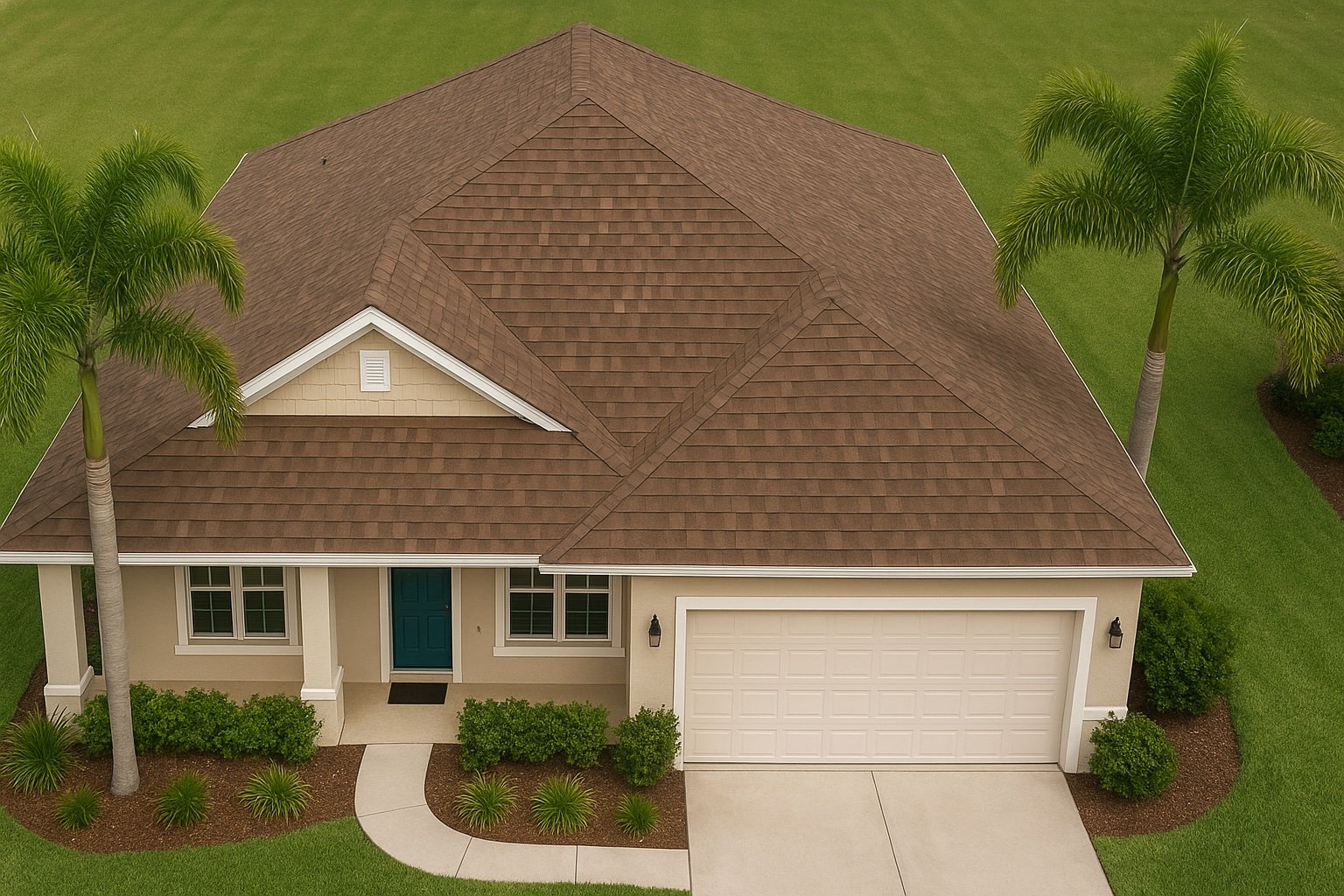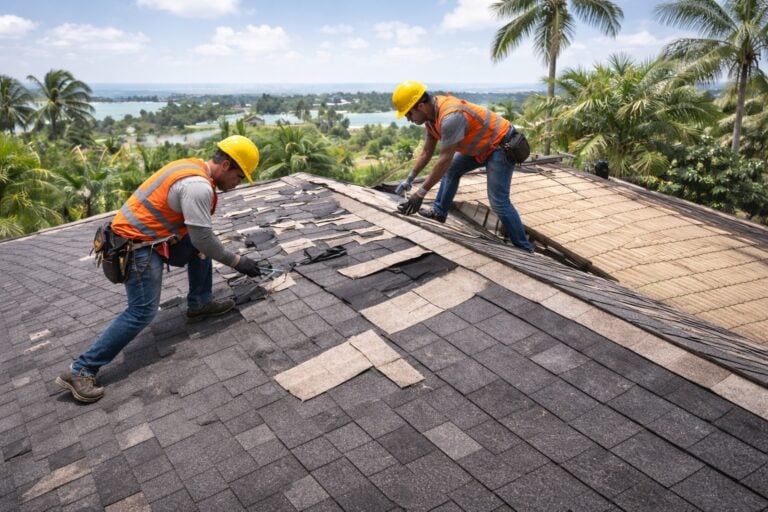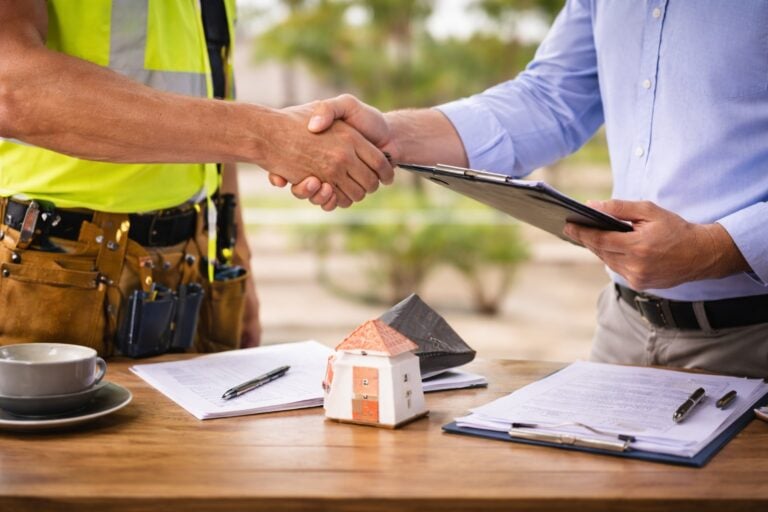In the process of evaluating residential properties, the roofing condition is often overlooked, despite its critical role in safeguarding a home’s integrity, insulation, and systems, such as ventilation and electrical. The team here at Steadfast Roofing in Riverview, FL, is ready to guide you!
Understanding the importance of a solid roofing system can save you money in the long run.
The Hidden Costs of a Poor Roof
A strong roofing system is essential for maintaining the overall integrity of your home.
A neglected roofing system can quickly escalate into extensive, expensive damage. Water infiltration not only destroys shingles but also compromises underlying structures, such as decking, insulation, wiring, and ceilings. These issues often go undetected until they hit your wallet hard. A professional roof inspection is crucial for uncovering hidden damage and providing a clear assessment of the structural soundness.
Without a properly maintained roofing system, homeowners risk facing significant financial setbacks.
Financing & Insurance Headwinds
A roof in disrepair can present barriers to securing homeowners’ insurance or mortgage approval. Many lenders and insurers require a minimum remaining lifespan—typically three years or more—or may deny coverage entirely if the roof is too old or visibly damaged. Without insurance, obtaining a mortgage becomes significantly harder.
Investing in a new roofing system can greatly enhance your property’s value.
Negotiation Leverage and Strategic Advantage
Purchasing a property with a bad roof isn’t always a deal breaker. In some cases, we can turn it into a negotiation advantage by requesting that the seller cover repairs, reduce the sale price, or escrow funds for replacement costs.
Choosing the right roofing system is vital for long-term investment protection.
Every homeowner should prioritize the condition of their roofing system to avoid costly issues.
In competitive markets, some sellers may already factor roof replacement into the asking price. We recommend verifying whether this is the case to inform your strategy.
Remember, the health of your roofing system directly impacts your home’s livability.
Pros & Cons Breakdown
| Pros of Buying with a Bad Roof | Cons of Buying with a Bad Roof |
| Lower purchase price or concessions negotiated | Potential for hidden, costly structural damage |
| Flexibility in choosing materials and upgrades | Financing and insurance challenges |
| Opportunity to extend the roof’s lifespan with proper replacement | Delays in move-in and added expenses upfront |
A home’s roof can represent either a cost-saving opportunity or a financial pitfall—depending on its condition and your preparedness.
Recommended Approach Before Committing
- Order a Professional Roof Inspection
Get an expert diagnosis to assess both surface and structural conditions. - Compare Contractor Quotes
Secure estimates from licensed roofers on repair vs. replacement costs. - Confirm Loan & Insurance Feasibility
Ensure your lender and insurer will approve financing or coverage for the property. - Negotiate with Substantiated Estimates
Use accurate repair data to push for seller concessions or price adjustments. - Consider Long-Term Value
A well-executed roof replacement not only preserves the home but also enhances resale value.
Ignoring your roofing system can lead to bigger problems down the line.
Potential buyers will look closely at the roofing system during their inspection.
A robust roofing system can enhance the aesthetic appeal of your property.
Structural Risk and Legal Implications
Roof issues, if left undisclosed, can lead to disputes, lawsuits, or costly delays in closing. Transparency from all parties is vital—roof defects may even affect nearby property valuations.
Regular maintenance of your roofing system is essential for longevity.
Timing and Certification Benefits
Sellers who proactively replace a problematic roof before closing can expedite the appraisal process and streamline the sale. Alternatively, if replacement isn’t feasible before purchase, a roof certification from a trusted contractor can reassure buyers and insurers of 3–5 years of guaranteed reliability.
Material Lifespan Considerations
Learning about different types of roofing systems can help you make informed decisions.
Roofing material dictates longevity and maintenance needs:
- Asphalt shingles – ~15–20 years
- Fiber cement or architectural shingles – ~25 years
- Slate, copper, or tile – up to 50+ years
Knowing the material lifespan helps evaluate whether a roof is nearing the end of its life or is still relatively functional.
Final Evaluation
When encountering a property with a poor roof, we advocate a balanced, data-driven approach:
- Inspect thoroughly
- Get accurate cost estimates
- Check financing and insurance viability
- Negotiate strategically
- Value the long-term benefits of replacing a roof
A quality roofing system is a critical component of a safe and secure home. We understand the importance of a reliable, leak-free roof. Whether you plan to renovate, insure, or resell, making an informed decision now will protect your investment—and your peace of mind.
Read one of our latest blogs: “The Hidden Risks of Hiring an Unlicensed Roofer”.





